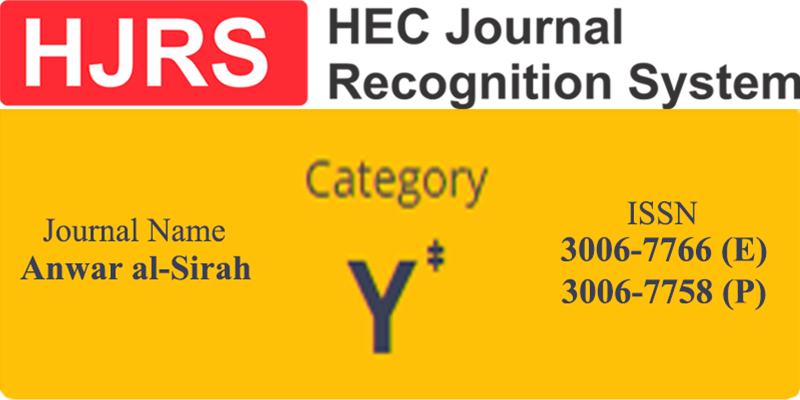Battlefield Without Bloodshed: The Prophet's (PBUH) 29 Strategies for Peace
DOI:
https://doi.org/10.5281/zenodo.13783848Keywords:
Peacebuilding, Non-violent methods, Social justice, Community building, Historical comparison, Social transformation, Seerah al-NabviahAbstract
This research article delves into the Prophet Muhammad's (PBUH) remarkable approach to establishing peace and order, extending beyond traditional warfare. It explores 29 distinct methods, he employed to foster a peaceful society in Arabia. These methods transcended the battlefield, encompassing a multifaceted approach that included diplomacy, intelligence gathering, strategic economic measures, and fostering a strong sense of community. It highlights his commitment to respecting the fundamental rights of all people, even during times of conflict. By accurately analyzing these 29 methods, the research offers valuable insights into achieving lasting peace and social transformation without solely relying on military might. A compelling comparison is drawn between the Prophet's approach and the devastating wars waged by other rulers of the era. The article underscores the effectiveness of his non-violent methods in establishing a vast Islamic caliphate, a feat achieved with minimal bloodshed (only 250 martyrdoms) across a territory spanning 3 million square kilometers. This stands in stark contrast to the large-scale casualties inflicted during the short-lived conflicts led by other rulers like Caesar and Kasra. The Prophet (PBUH) strategy of achieving victory without war & bloodshed is one that we should adopt in today's world. This article presents the Prophet Muhammad's (PBUH) approach to peacebuilding as a valuable case study, offering timeless principles and methods applicable to contemporary efforts in conflict resolution and social transformation.
Downloads
Published
How to Cite
Issue
Section
License
Copyright (c) 2024 Muhammad Tahir Akbar M. T. Tair

This work is licensed under a Creative Commons Attribution-NonCommercial 4.0 International License.
Copyrights of all research papers published in Journal of the 'ANWĀR AL-SĪRAH are held by the auther(s). However, as the 'ANWĀR AL-SĪRAH follows Open Access Policy under license CC by NC for global exchange of knowledge, readers are freely allowed to download, read and print the full text papers of 'ANWĀR AL-SĪRAH without prior permission from the 'ANWĀR AL-SĪRAH or the author(s) as long as they acknowledge/cite the 'ANWĀR AL-SĪRAH as the original source.


